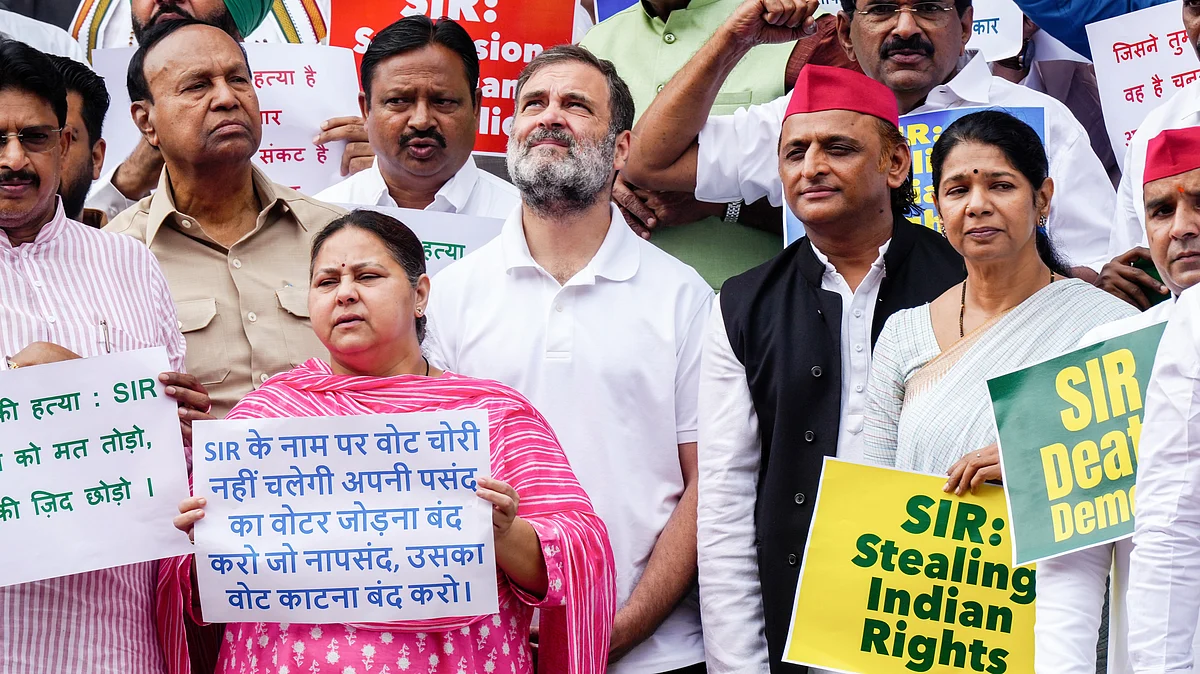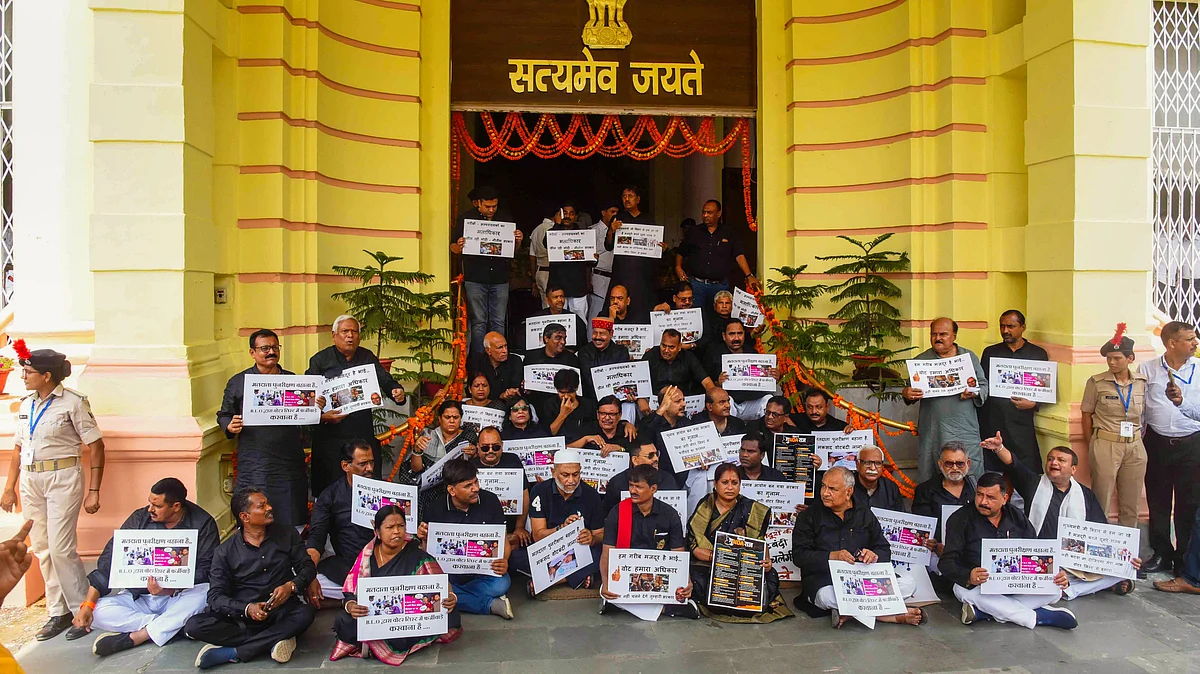Election Commission’s affidavit on SIR in Bihar raises more questions
ECI says it is neither determining nor granting citizenship but merely ensuring that non-citizens are weeded out of electoral rolls

In its counter affidavit filed in response to petitions challenging the Special Intensive Revision (SIR) being undertaken in Bihar, the Election Commission of India (ECI) has denied the contention that it has exceeded its brief and undertaken a determination of citizenship, the exclusive domain of the Union ministry of home affairs (MHA). The affidavit maintains that the ECI is merely discharging its duty to ensure that names of non-citizens are not included in the list of voters.
The affidavit also attempts to allay doubts that non-enrolment as a voter will terminate an individual’s citizenship. The ECI, according to a report in Live Law, has argued that people can continue to be citizens without being voters. The relevant portion of the affidavit says, “Under the SIR exercise, the citizenship of an individual will not terminate on account of the fact that he/she is held to be ineligible for registration in the electoral rolls.”
The commission is also said to have turned down the Supreme Court’s ‘suggestion’ to consider EPIC (Elector’s Photo Identity Card), Aadhaar, and ration cards as additional documents to establish eligibility of voters. All three documents were missing from the ECI’s notification on 24 June. In its affidavit submitted on 21 July, the commission argued that EPIC cannot be relied upon because it is based on a pre-existing electoral roll which is under revision. Similarly, Aadhaar is not proof of citizenship, the affidavit argues, and has been found to have been faked and duplicated on a large scale.

Also Read: Bihar: SIR sparks anxiety and anger
The affidavit, however, fails to address two principal concerns of the petitioners. While petitioners did not contest the right and duty of the commission to weed out voters it suspects to be ineligible, it questioned the wisdom behind ‘harassing all in order to throw out a few’. Even by the ECI’s own standards, the percentage of dubious voters is small and in single digits. However, all eligible voters are being subjected to harassment and asked to produce documents to prove that they are Indian citizens.
Petitioners had pointed out that there was no need for the ECI to link the exercise to the Bihar assembly election due before November. The commission, which had undertaken a far less stringent special revision in Bihar in 2003 over a period of two years, they argued, is insisting on a more stringent exercise within a short period of one month. What prevents the commission from continuing with the exercise and take more time, they had asked.
The affidavit also fails to address the question of what triggered the exercise barely three months before the assembly election. Since the commission concluded a summary revision of electoral rolls in the state barely six months ago in January, what prompted it to undertake the exercise to rebuild the electoral rolls from scratch?
If the ECI is privy to information about a sudden demographic change or influx of people from across international borders in parts of Bihar, the commission had the authority to conduct ‘intensive revisions’ in those specific constituencies. It is not clear why the ECI felt it was necessary to create new electoral rolls in such a short period across the entire state.
What is even more puzzling is that while the government and the ECI have, until recently, been talking about linking Aadhaar with EPICs and electoral rolls, both identity and address proofs are now suddenly unacceptable.
The affidavit takes much pain to point out that articles 324 and 326 of the Constitution, besides sections 16 and 19 of the Representation of People Act, vest the ECI with the power to examine if applicants wishing to register as electors fulfil the eligibility, a key criterion being that an elector must be a citizen of India. Contending that it is the Commission's duty to verify whether this condition is met, the ECI argues that it must also ensure that ‘every person fulfilling all the eligibility requirements does not get excluded from the electoral rolls'.
This is precisely what the petitioners have argued, that the SIR exercise is designed to exclude otherwise eligible voters from the electoral rolls.
While the affidavit refutes the charge that it had encroached upon the jurisdiction of the Central government which is the sole authority to determine citizenship, it argues that multiple authorities are empowered to determine citizenship. The only exclusive jurisdiction of the Central government, it says, is to determine how any citizen of India has acquired citizenship of another country and to terminate the citizenship.
The next date of hearing in the Supreme Court is fixed for 28 July.
Follow us on: Facebook, Twitter, Google News, Instagram
Join our official telegram channel (@nationalherald) and stay updated with the latest headlines
